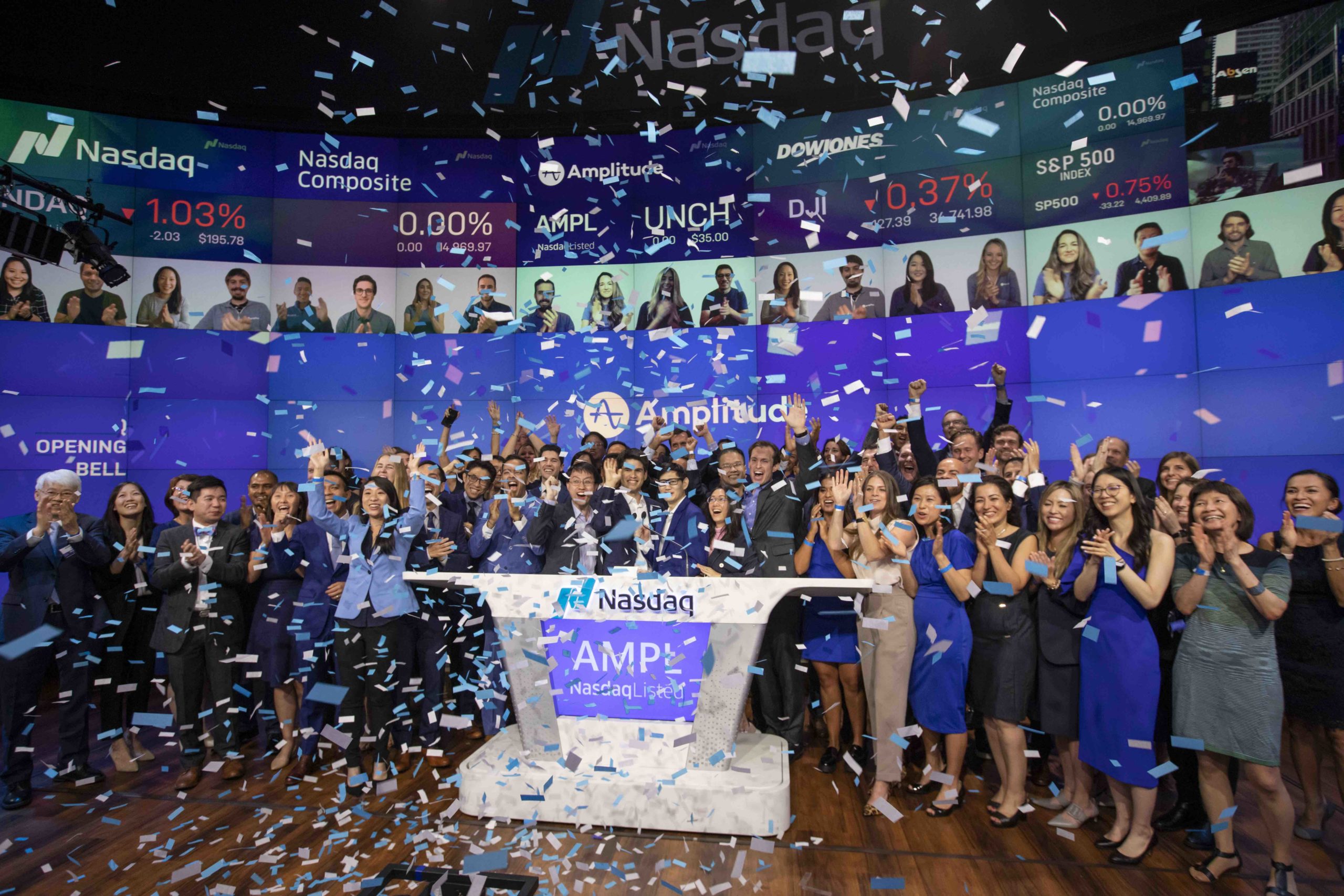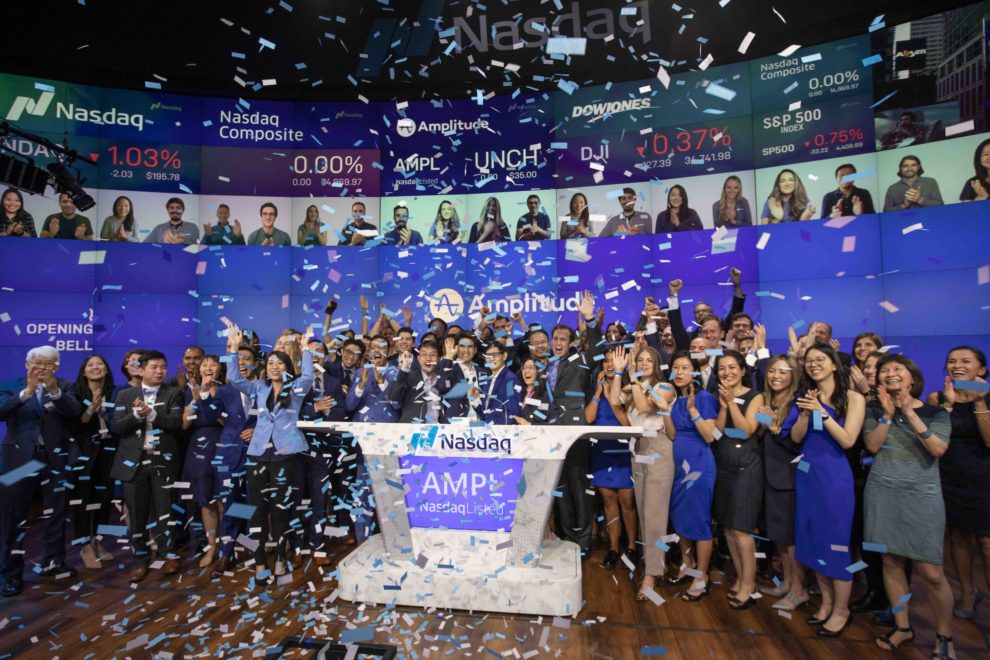Product intelligence platform Amplitude went public today via a direct listing. Nasdaq had set the reference price at $35, which valued the company around $4.5 billion. However, the opening trade came in at $50, valuing the company well above that amount at $6.4 billion, and above the company’s last private valuation of $4.2 billion.
Subscribe to the Crunchbase Daily
We spoke with founder and CEO Spenser Skates today after he rang the bell with his team.
“[What] Salesforce1 has done for sales teams and Adobe has done for marketing teams, Amplitude is doing for product teams,” he said.
Amplitude provides a “cockpit for every business to figure out what’s going on in its websites and apps,” said Skates. It helps product teams understand “what features people like, what they don’t like, where they get stuck.”

The San Francisco-headquartered company was co-founded in 2012 by Skates, CTO Curtis Liu and Chief Architect Jeffrey Wang. Both Skates and Liu are listed in the S-1 filing as owning 8.7 percent and 7.7 percent, respectively.
Amplitude has 26 of the Fortune 100 as customers, including Twitter, Dropbox, Atlassian and PayPal and more traditional companies Walmart, NBC, Ford and Burger King.
For an example of Amplitude’s value, consider the insight it gave to client Peloton. What the super fitness brand learned from Amplitude was that a social experience during a workout meant a customer was more likely to work out again and make it a habit. The company introduced high fives, leaderboards and other social elements to engage people and for them to have fun while working out.
Going direct
On why the company elected to do a direct listing, Skates said: “Traditional IPOs severely underprice companies. On average, the traditional IPO underpriced companies by 50 percent. Why does anyone do this?”
The gap between the reference price of $35 and the price investors were willing to pay at the opening is an example of how a traditional IPO process would have priced the shares “much much lower than what the market was actually willing to pay for our stock,” he said.
The company did not raise funding via the direct listing, but rather through a Series F of $150 million before the debut. Amplitude has $300 million on its balance sheet, and is not planning on raising funding as a public company in the next year, so “we’re in great shape,” said Skates.
The institutional investors with the largest ownership stakes are:
- Benchmark is the investor with the largest holding, owning 15.3 percent having led the Series A with general partner Eric Vishria on the board;
- Battery Ventures owns the second-largest institutional amount with 14 percent of the company having led the Series B with general partner Neeraj Agrawal on the board;
- Series C investor IVP held 8.8 percent led by general partner Somesh Dash;
- Sequoia Capital led the series D and F with 7.8 percent ownership, and general partner Patrick Grady on the board; and
- Jasmine Ventures, an affiliate of GIC, led the Series E and owns 5 percent.
Collectively these investors own more than 50 percent of the cap table before the listing.

For the six months ending June 30, 2021, revenue was $72.4 million, up 57 percent from the same time frame a year earlier at $46 million according to the S-1. Net losses were $16.5 million six months into 2021, compared with $16.6 million in the first six months of 2020, according to the S-1 filing.

on Tuesday, Sept. 28, 2021. (Andrew Kelly/AP Images for Amplitude)
“We’ve done 10 years of work to get to this point. And that ended last night. And then this morning we started the part two phase of Amplitude,” said Skater. “As a public company the stakes are higher, we’re much more visible, everyone has to raise their execution across the board.”
But for now the company is celebrating.
Other venture-backed companies that went public via a direct listing this year include Coinbase, Roblox, Wise and Squarespace.
Illustration: Li-Anne Dias
Correction: The reference price valuation was updated to $4.5 billion.

Stay up to date with recent funding rounds, acquisitions, and more with the Crunchbase Daily.







67.1K Followers